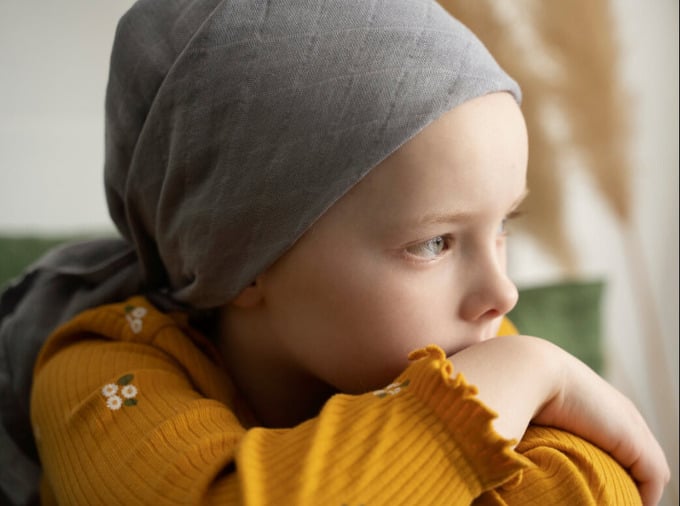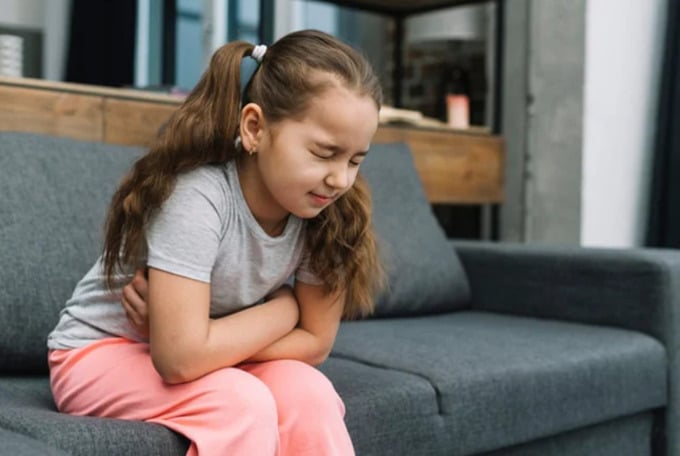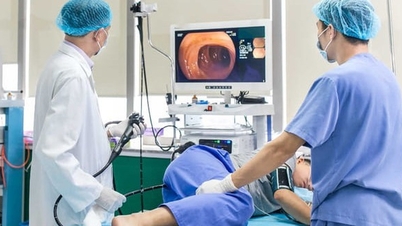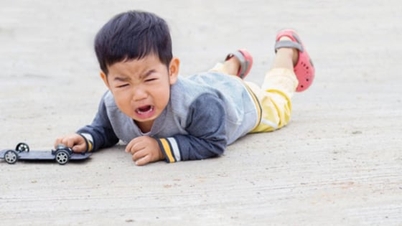A new 22-year analysis of data from the Centers for Disease Control and Prevention shows that rates of colorectal cancer in children increased significantly from 1999 to 2020. Researchers found that colorectal cancer rates increased 500 percent in children ages 10 to 14. During that time, they increased 333 percent in adolescents ages 15 to 19 and 185 percent in young adults ages 20 to 24. The data will be presented at Digestive Disease Week later this month.
It is important to emphasize that the overall number of these cases is low. For example, in 2020, only 0.6 children aged 10 to 14 were diagnosed with colorectal cancer per 100,000 children, compared with 0.1 per 100,000 in 1999. In adolescents, the number increased from 0.3 to 1.3 per 100,000 children, and in young adults, the number of cases increased from 0.7 to 2 per 100,000.

Illustration
Why is colorectal cancer in children on the rise?
It’s not clear why colorectal cancer is on the rise in young people. But Dr. Biachi says there are a few things to keep in mind: “It’s known that developing ‘non-hereditary’ colorectal cancer takes time, and the typical time between polyps and cancer is five to 10 years. “That means these kids who get colorectal cancer are likely exposed to risk factors from a very young age.”
Lifestyle factors can play a role, such as obesity, eating a lot of processed foods, living a sedentary lifestyle, and taking antibiotics that alter a child's gut microbiome, says Jacqueline Casillas, MD, a pediatric hematologist/oncologist and medical director of the Jonathan Jaques Children's Cancer Institute at MemorialCare Miller Long Beach Women's & Children's Hospital.
But Dr. Jeffrey Hyams, a pediatric gastroenterologist at Connecticut Children’s Medical Center, says the case is still extremely rare. “I’ve been practicing medicine for 40 years, and I’ve seen one case of colorectal cancer in a teenager,” he says. (Risk factors for colorectal cancer include having an inflammatory bowel disease like ulcerative colitis or Crohn’s disease, a family history of colorectal cancer, and genetic syndromes like Lynch syndrome and familial adenomatous polyposis, according to the American Cancer Society.)
Dr. Anton Bilchik, surgical oncologist, chief of medicine and director of the Gastrointestinal and Hepatobiliary Program at Providence Saint John's Cancer Institute in Santa Monica, California, also emphasized the rarity of the case: “One has to interpret these numbers with caution.
“This is not a reason to start screening children with colonoscopy, but rather to discuss the reasons behind this phenomenon,” said Dr. Biachi.

Illustration
What are the symptoms of colorectal cancer in children to pay attention to?
Research shows that these are the most common symptoms experienced by colorectal cancer patients:
+ Change in bowel habits due to constipation or diarrhea.
+ Abdominal pain.
+ Rectal bleeding.
+ Signs of anemia, iron deficiency.
How to differentiate symptoms of colon cancer from stomach problems:
Doctors say that if your child has the symptoms listed above, it does not automatically mean they have colorectal cancer and that the symptoms are more likely to be caused by something else. If any child has abdominal pain that lasts longer than a month or two, loose stools with blood, anemia, and weight loss, these issues should be considered.
Doctors will usually perform tests such as stool tests, blood tests and abdominal X-rays before moving on to a more major procedure such as a colonoscopy. In particular, it is recommended that you pay attention to your children's intestinal health. Good reminder to start healthy habits early, start eating healthy when young, be physically active every day.
However, doctors emphasize that parents should not panic about these research results because colorectal cancer is still extremely rare in children.
-> Colon cancer: If you see this sign, you should see a doctor immediately.
Source: https://giadinhonline.vn/ung-thu-dai-truc-trang-o-my-tang-500-ngay-cang-tre-hoa-do-tuoi-d198612.html






![[Photo] Award ceremony for works on studying and following President Ho Chi Minh](https://vphoto.vietnam.vn/thumb/1200x675/vietnam/resource/IMAGE/2025/5/20/a08ce9374fa544c292cca22d4424e6c0)































![[Photo] Vietnamese shipbuilding with the aspiration to reach out to the ocean](https://vphoto.vietnam.vn/thumb/1200x675/vietnam/resource/IMAGE/2025/5/20/24ecf0ba837b4c2a8b73853b45e40aa7)
























































![[VIDEO] - Enhancing the value of Quang Nam OCOP products through trade connections](https://vphoto.vietnam.vn/thumb/402x226/vietnam/resource/IMAGE/2025/5/17/5be5b5fff1f14914986fad159097a677)
Comment (0)